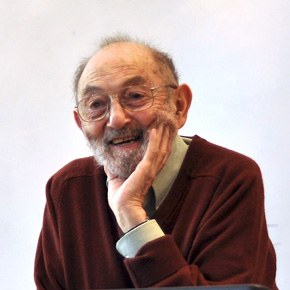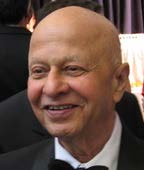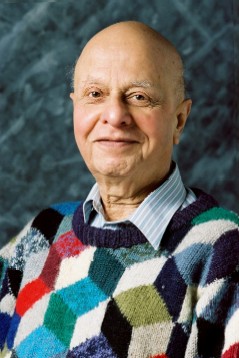Eric Pratt Hamp (11/16/1920 – 2/17/2019)
This obituary is a guest post by Brian Joseph. See also "The very model for historical comparison", by Nancy Dray.
The linguistics world suffered a huge loss on February 17 when Eric Pratt Hamp, a giant on the American and global linguistic scene, passed away at the age of 98. Eric was one-of-a-kind, an amazing scholar and polymath, a specialist in historical linguistics and in the history of a number of individual languages, but a contributor to theoretical issues as well, especially in structural linguistics. He understood the ins and outs of language change, arguing for a balance between system-internal factors and system-external factors, i.e. language contact, as the source of innovations, and applied his knowledge judiciously and carefully, working out the details of both language-internal and contact-induced changes for numerous languages, perhaps most tellingly those of the Balkan peninsula.
Read the rest of this entry »
 Stanley Insler died unexpectedly last night in Yale-New Haven hospital. He was Professor Emeritus of Linguistics at Yale University, the Edward E. Salisbury Professor of Sanskrit and Comparative Philology in the Department of Classics.
Stanley Insler died unexpectedly last night in Yale-New Haven hospital. He was Professor Emeritus of Linguistics at Yale University, the Edward E. Salisbury Professor of Sanskrit and Comparative Philology in the Department of Classics.
 Richard T. Oehrle died on Wednesday. He was one of my oldest friends — I met him in 1965, when I was a first-year undergraduate and neither of us had any idea that we would end up in related fields. (Dick's undergraduate and master's degrees were in English and Comparative Literature, before he started grad school in Linguistics at MIT in 1970.) His many contributions to linguistics can be glimpsed in
Richard T. Oehrle died on Wednesday. He was one of my oldest friends — I met him in 1965, when I was a first-year undergraduate and neither of us had any idea that we would end up in related fields. (Dick's undergraduate and master's degrees were in English and Comparative Literature, before he started grad school in Linguistics at MIT in 1970.) His many contributions to linguistics can be glimpsed in 

